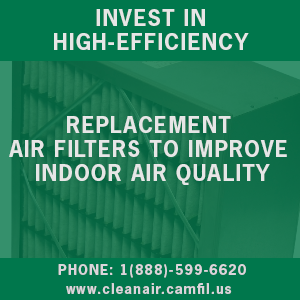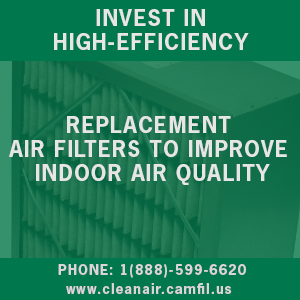Clean Air Solution by Camfil USA. Leader in Air Filters for Commercial and Industrial applications.
Some of the effects of corrosion include a significant deterioration of natural and historic monuments. Air pollution causes corrosion, and it’s becoming worse worldwide.
One of the consequences of air pollution that is seldom talked about is the effect of corrosion on man-made materials throughout the world. As air pollution levels have risen in industrialized countries, so too has there been a corresponding increase in corrosion levels. But this doesn’t just affect man-made monuments; it also affects things closer to homes such as vehicles, barbecue grills, outdoor furniture and household tools.
Corrosion also degrades important infrastructure such as steel-reinforced- highways, electrical towers, parking structures and bridges. In short, corrosion is a subject that bears further investigation, so that you can understand how this hidden degradation impacts your life.
What Is Corrosion?
According to EonCoat, corrosion is the process of decay on a material caused by a chemical reaction with its environment. Corrosion of metal occurs when an exposed surface comes in contact with a gas or liquid, and the process is accelerated by exposure to warm temperature, acids, and salts.” (1)
Although the word ‘corrosion’ is used to describe the decay of metals, all natural and man-made materials are subject to decay, and the level of pollutants in the air can speed up this process.
The reason is that airborne contaminant such as particulate matter (PM) are created because of the chemical reactions between liquids and solids. These same liquids and solids, including salt and black carbon, can interact with the molecules within metals and accelerate decay.
In fact, Corrosion Doctors have identified sulfur dioxide that is generated by power plant emissions and vehicle emissions as one of the biggest contributors to corrosion. (2)
High levels of sulfur dioxide can damage trees and plants by destroying foliage and inhibiting future growth.
But sulfur dioxide doesn’t just help degrade metal and other materials; it also has some harmful health effects. The U.S. Environmental Protection Agency (EPA) has found that short-term exposure to sulfur dioxide can worsen asthma symptoms and make breathing difficult. (3)
Atmospheric Corrosion Study Sheds More Light
A recent atmospheric corrosion study has helped to shed more light about how airborne pollutants directly affect metals in an industrial city environment.
Researchers began with the thesis that atmospheric corrosion of metals and their alloys is very common in the industrial city environment due to the high concentration of corrosive pollutants in the air. (4)
In other words, researchers theorized that air pollution in a major city would accelerate the corrosion process and help degrade metals faster than if the pollution was at a lower level.
To test this theory, researchers exposed various metal samples to an industrial city environment for 12 months to determine the effect of airborne particulates on the rate of corrosion. They chose an area within the test city that had a high level of pollutants.
The study found that metals corroded at a much faster rate during the winter when pollution levels were at their highest. This increase in pollution was caused by higher emissions generated by nearby power plants and heating plants, as well as from vehicle emissions and heating furnaces that were in wide use due to the cold weather.
The most common pollutants that accelerated corrosion were sulfur dioxide, carbon dioxide, dust and humidity.
The Effects of Corrosion
So what are the effects of corrosion that could actually affect your daily life?
- Vortex Energy Saver identifies some of the direct effects of corrosion, which include: (5)
- Damage to commercial airplanes that could result in possible in-flight problems
- Damage to oil pipelines that could cause a costly and dangerous rupture that creates significant environmental damage.
- Damage to bridge supports that could cause a bridge failure
- Release of harmful pollutants from iron corrosion that contaminates the air
- Costs of repairing or replacing household equipment that fails
“We know that many commercial industries such as oil and gas, construction and electronics are vulnerable to the effects of corrosion,” stated Trent Thiel, Camfil USA Molecular Filtration
Segment Manager. “Without control methods, there is likely to be equipment and structural failure that can have catastrophic consequences. That’s why molecular filtration is so vital to removing corrosive agents from the air and ensuring structural integrity.”
Prevent Corrosion at Home
There are several ways you can prevent corrosion at home. First, you can use surface treatments on all metals to protect them from airborne pollutants. Second, you can galvanize all metal products, which makes them highly resistant to corrosion. And third, you can invest in high-efficiency air filters to improve your indoor air quality and eliminate harmful pollutants that contribute to the corrosion process.

CAMFIL:
For more than 50 years, Camfil has been providing the most technologically-advanced air filtration systems. Camfil offers the most efficient industrial filtration solutions to clients throughout the world, and has built its reputation on providing quality on a budget. Camfil operates under the guiding principle that clean air is the right of all humans no matter where they live. The company offers clean air solutions that will improve your indoor air quality and eliminate harmful pollutants that help facilitate the corrosion process.
Other Resources for you
- Learn aboutHow Molecular Air Filtration Thwarts Corrosion in our Previous blog post
- Read our blog post: Data Center Air Filtration
Lynne Laake
Camfil USA Air Filters
T: 888.599.6620
E: Lynne.Laake@camfil.com
F: Friend Camfil USA on Facebook
T: Follow Camfil USA on Twitter
Y: Watch Camfil Videos on YouTube
SOURCES
- http://eoncoat.com/corrosion-101-what-is-corrosion/
- http://corrosion-doctors.org/Corrosion-Atmospheric/Factors-atmospheric.htm
- https://www.epa.gov/so2-pollution/sulfur-dioxide-basics#what%20is%20so2
- http://www.sciencedirect.com/science/article/pii/S2352340915000281
- http://www.vortexenergysaver.com/effects-of-corrosion/
The post What are the Effects of Corrosion? appeared first on Air Filters for Clean Air.

